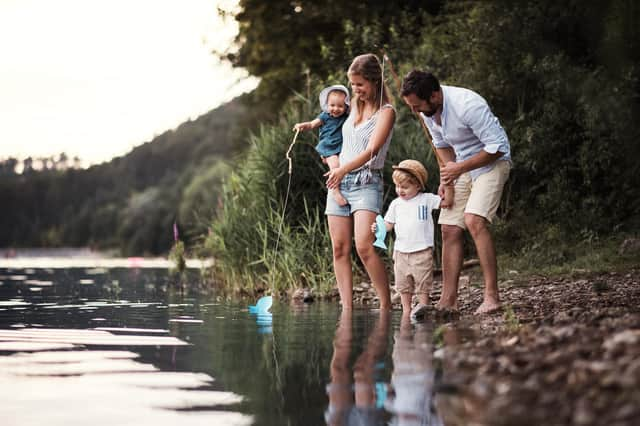Top tips to get you and your family enjoying the great outdoors
This article contains affiliate links. We may earn a small commission on items purchased through this article, but that does not affect our editorial judgement.


The experts at Blacks have compiled a list of tips to help families fight their habitual sedentary behaviours and start exploring the outdoors.
Introduce your kids to the outdoors
Swapping from the sofa to a steep hike probably won’t be an attainable goal straight away,- and if it’s a particularly difficult climb, it might not be much fun either. Embark on smaller challenges to allow your kids to become more familiar with the outdoors.
Advertisement
Hide AdAdvertisement
Hide AdDIY fort making, climbing sessions and trips out with fishing nets will immerse your children in nature - with each activity preparing them for the next milestone.
Lay your adventure gear out the night before
One of the best ways to ensure you stick to your plans is to prepare all your family’s outdoor wear the night before. Putting out walking boots, finding those ever-important thermals and packing all non-food items in a rucksack ahead of time will help you stay organised and calm before setting out into the great outdoors with your family.
Empowerment coach and anxiety specialist Adele-Marie Hartshorn said: “Keep your adventure gear in eyesight. Visual prompts are imperative for motivation. Also, talk to your children about the upcoming adventure to get them in the explorative mindset as this will encourage them to enjoy the activity”.
Make it a game!
There are many different ways to engage children and make trips out fun, whether that is creating competitions or encouraging unstructured exploration. Pedometer count competitions, scavenger hunts are great examples of this.
Reserve a specific time for outdoor activity
Advertisement
Hide AdAdvertisement
Hide AdRoutine is essential for children to develop healthy habits - dedicating a specific amount of time to outdoor exploration will ensure that all members of your family are experiencing the richness of nature together.
Adele-Marie said: ”This is a brilliant way to incorporate a routine. Reserving your Saturday afternoon for a walk each week or planning to walk as a family three times a week, for example, will provide certainty for children who learn to expect scheduled time with family. Setting a routine is particularly beneficial for those with additional needs and neurodiversity”.
Acknowledge the responsibility of being in nature
Nature reserves, hiking trails and bodies of water all house a number of different organisms, exploring and respecting these locations as a family is a great way to teach your children how to appreciate wildlife and to take care of communal sites.